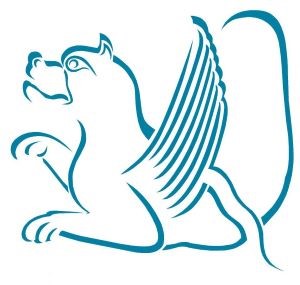
Turkmen horses, famous the world over for their beauty, their magnificence, and for their ability to withstand hunger, thirst and the desert clime, hold a special place in the Turkmen state. These horses, brought virtually to the point of extinction during the Soviet era, have once again, due to the importance placed on the matter by the Republic of Turkmenistan, begun to flourish and reestablish the special place they had long played in world history. The special sensitivity shown for the subject by President Turkmenbasi and the support he has given to equestrianism have speeded up the advances made in this area. We undertook research on the subject in Turkmenistan on various occasions in the light of proposals put of the Turkmenistan Ministry of Foreign indicating the need for a study of Turkmen equine culture and for the production of a book on the subject. As a result of such research we have been able to obtain numerous books and articles and slides and negatives. It is within such a context that we have attempted to prepare a book on "Turkmen Equine Culture" and to promote Turkmen equine culture and horses. By making use of the available materials, 1 have written some articles with respect to this subject.
Riding and owning horses is no doubt a source of much pleasure. This is even more clearly the case among the Turkmen, who throughout history have lived intimately with horses, who have "held them higher than brothers," and who have given horses a central place in their culture and economy. It is the power and strength of the horse that have made it possible for the Turkmen to explore vast areas and to conquer lands in different geographies. The place that the horse has played in the social, economic and military spheres has also been the source of the central role it has played in Turkmen culture and of its symbolic significance. The domestication of horses was undertaken for the first time by Turkic peoples, and this fact has constituted a turning point not just of Turkmen civilization, but in human history. With the horse the pace of cultural development quickened, new methods of experimenting with systems of production were developed, and humankind passed from a primitive to a more advanced state.
I thank to the Foreign Ministry of Turkmenistan, to the Turkmenistan Ambassador Washington, Halil Uğur and senior advisor of the Prime Minister of the Republic of Turkey, Kamil Yüceoral for the assistance they have given me. Also I thank the chairman of the companies of Berk Denizcilik AS and Berk Gemi İnsa San. Tic. Ltd Sti; builders of the first Oil Product Tanker of the Turkmen Maritime Lines called "Gyhryman Atamyrat Niyazow"; Metin Kaska who contributed to the publication and the circulation of this work. -Dr. Ali Abbas ÇINAR (From Preface)
Turkmen horses, famous the world over for their beauty, their magnificence, and for their ability to withstand hunger, thirst and the desert clime, hold a special place in the Turkmen state. These horses, brought virtually to the point of extinction during the Soviet era, have once again, due to the importance placed on the matter by the Republic of Turkmenistan, begun to flourish and reestablish the special place they had long played in world history. The special sensitivity shown for the subject by President Turkmenbasi and the support he has given to equestrianism have speeded up the advances made in this area. We undertook research on the subject in Turkmenistan on various occasions in the light of proposals put of the Turkmenistan Ministry of Foreign indicating the need for a study of Turkmen equine culture and for the production of a book on the subject. As a result of such research we have been able to obtain numerous books and articles and slides and negatives. It is within such a context that we have attempted to prepare a book on "Turkmen Equine Culture" and to promote Turkmen equine culture and horses. By making use of the available materials, 1 have written some articles with respect to this subject.
Riding and owning horses is no doubt a source of much pleasure. This is even more clearly the case among the Turkmen, who throughout history have lived intimately with horses, who have "held them higher than brothers," and who have given horses a central place in their culture and economy. It is the power and strength of the horse that have made it possible for the Turkmen to explore vast areas and to conquer lands in different geographies. The place that the horse has played in the social, economic and military spheres has also been the source of the central role it has played in Turkmen culture and of its symbolic significance. The domestication of horses was undertaken for the first time by Turkic peoples, and this fact has constituted a turning point not just of Turkmen civilization, but in human history. With the horse the pace of cultural development quickened, new methods of experimenting with systems of production were developed, and humankind passed from a primitive to a more advanced state.
I thank to the Foreign Ministry of Turkmenistan, to the Turkmenistan Ambassador Washington, Halil Uğur and senior advisor of the Prime Minister of the Republic of Turkey, Kamil Yüceoral for the assistance they have given me. Also I thank the chairman of the companies of Berk Denizcilik AS and Berk Gemi İnsa San. Tic. Ltd Sti; builders of the first Oil Product Tanker of the Turkmen Maritime Lines called "Gyhryman Atamyrat Niyazow"; Metin Kaska who contributed to the publication and the circulation of this work. -Dr. Ali Abbas ÇINAR (From Preface)













